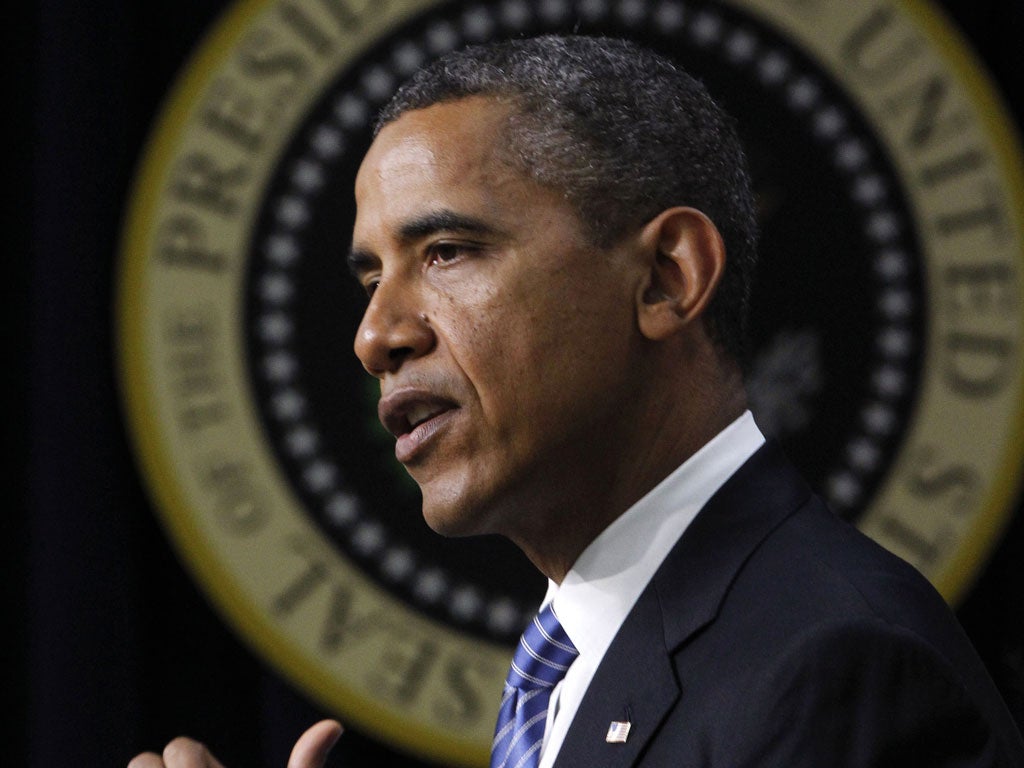Adrian Hamilton: We're back to the bad old days of clandestine US interfering abroad
World View: Resorting to cyber-assaults will come back to haunt President Obama

The Olympic Games means one thing in London at the moment but over in Washington it means something quite else. It was the name given to the secret cyberwar launched by the US in conjunction with the Israelis against Iran in an effort to disrupt its nuclear development by planting worms in its computer systems.
The "Stuxnet worm", as it was called when it became known in 2010, managed to cause consternation in the industrial world, fearful that their peaceable pursuits might be infected. But few asked whether America should be pursuing such a programme in secret against its perceived enemies.
They should have asked. Like the use of drones, the development of cyber warfare has grown as a cheap and politically acceptable alternative to military intervention. Putting American boots on the ground is seen as less and less acceptable to the US public after the experience of Iraq and Afghanistan. Pursuing your enemies by launching missile attacks from unmanned aircraft, and disrupting them by undermining their computer systems, has become the way of acting tough while risking little.
That, at any rate, is the way the White House seems to view it now, and it casts a worrying light on just how peaceable and internationalist President Obama really is. That he doesn't want America's open involvement in foreign ventures was clear from his reluctance to take the lead in the Nato campaign against Colonel Gaddafi.
But then he has shown no reluctance to launch drone attacks across borders in what is essentially a campaign of assassination, with targets chosen in secret and collateral damage of civilians shrugged off as the stuff that happens.
A review of two recent books on Obama's foreign policy in the New York Review of Books points out that Obama personally sanctions the main drone attacks and takes a close, and apparently eager, interest in them. That could be a sign of concern at propriety. But it could also be a sign of political expediency.
The public demands action on Syria. Obama, wisely, knows that direct intervention is too fraught with problems, so he announces instead that he is giving the green light for the CIA to help the Syrian Free Army win the civil war.
It wasn't supposed to have been like this. Obama came in with a promise to close Guantanamo Bay and end the torture and other nefarious practices which the CIA had pursued in Bush's "War on Terror". Instead, we seem to be going back to the bad old days of clandestine interference. And the worst of it is that it is, as Obama has now learnt, extremely popular. The killing of Osama bin Laden was an act of assassination once declared illegal under US law as a gross violation of international law. But it also did wonders for Obama's rating whilst he prepared for a re-election campaign.
Better drones and cyber attacks than outright invasion, say his supporters. No, they are not. America, as Britain, should have learnt that by now from the damage done by the misdeeds of the War on Terror. Little does the image of the US so much harm as the sense that it talks one language and practises another.
Using drones not only flies in the face of America's own principles but causes deep and abiding resentment and anger – among the communities attacked and the relations of the civilians killed. Resorting to cyber-assaults serves to induce an escalation of response which can only undermine peaceful development of the internet. Doing it in conjunction with the Israelis serves to lock Washington into a relationship of intelligence from which it will be impossible to break free.
It is an illusion of democracies, and of America in particular, that you can interfere abroad without consequences simply because you can do it in secret and without uniformed bodies. In the long run, the actions always come back to haunt you.
Join our commenting forum
Join thought-provoking conversations, follow other Independent readers and see their replies
Comments